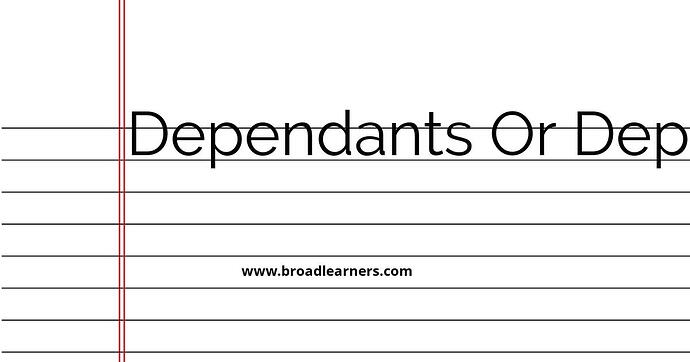'Dependants' and 'dependents' are commonly confused words in English grammar. Understanding the difference between 'dependants' and 'dependents' is important to use them correctly in written and spoken English.
'Dependants' is a noun that refers to people who rely on someone else for financial support or care. It is commonly used in legal and financial contexts, such as when discussing insurance policies or tax deductions.
'Dependents' is also a noun that refers to people who rely on someone else for support or care. However, it has a broader meaning and can be used in a wider range of contexts.
Let's take a closer look at the meanings and usage of 'dependants' and 'dependents'.
| 'Dependants' | 'Dependents' |
|---|---|
| The word 'dependants' refers specifically to people who rely on someone else for financial support or care. | The word 'dependents' refers to people who rely on someone else for support or care in a broader sense. |
|
|
To remember the difference between 'dependants' and 'dependents', it can be helpful to remember that 'dependants' refers specifically to people who rely on someone else for financial support or care, while 'dependents' has a broader meaning and can be used in a wider range of contexts.
Here are some examples of correct usage:
- She has three dependants who rely on her for financial support.
- Many companies provide health insurance coverage for employees and their dependents.
- He claimed his elderly mother as a dependant on his tax return.
- The organization offers support services for dependents of military personnel.
Remembering the correct usage of 'dependants' and 'dependents' will improve your grammar and communication skills.
